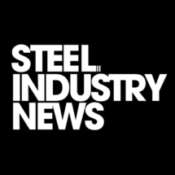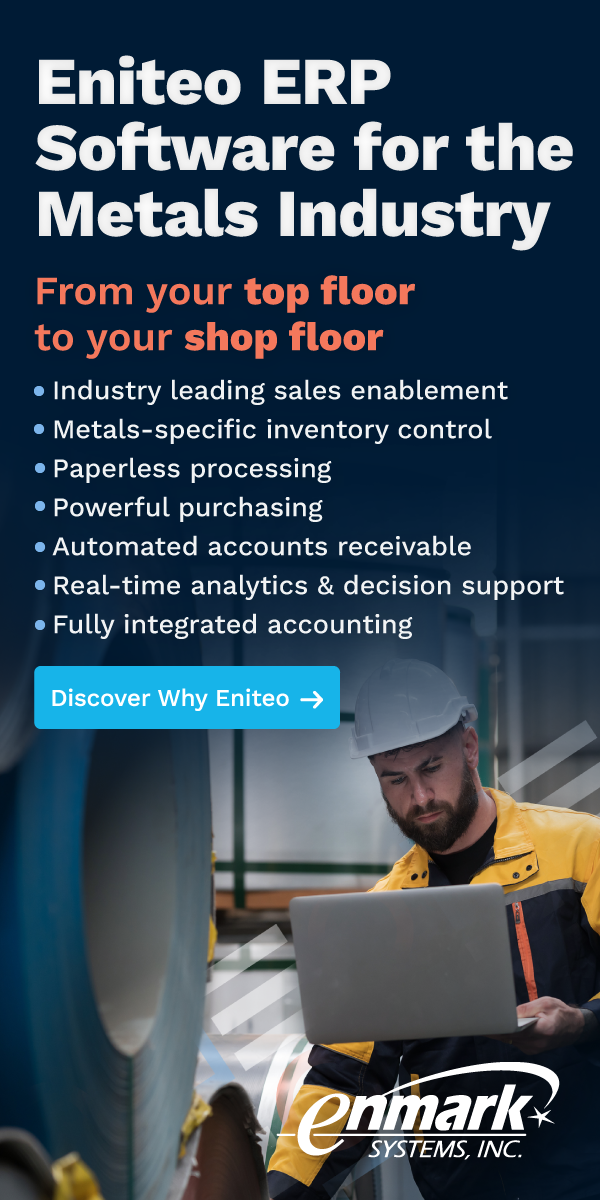In a significant development for the clean energy sector, tech giants Google and Microsoft have joined forces with steel producer Nucor to launch a groundbreaking initiative. This collaboration aims to tackle a critical hurdle in the widespread adoption of advanced clean electricity technologies.
Why This Initiative Matters
The International Energy Agency (IEA) emphasizes the crucial role of firm, dispatchable clean electricity technologies and advanced energy storage systems in decarbonizing power grids. These technologies address the limitations of renewable sources like solar and wind by providing consistent power output and grid reliability, functions currently fulfilled by fossil fuels.
However, these advanced solutions face a major challenge: securing financing for early-stage commercial projects. Their novelty and inherent risk make them unattractive to traditional investors.
A Collaborative Approach to Clean Energy Procurement
This joint initiative by Google, Microsoft, and Nucor seeks to address this financing roadblock through demand aggregation. By combining the clean energy procurement needs of these three major companies, the initiative aims to:
- Reduce Risk for Developers and Utilities: By presenting a larger, unified pool of committed offtakers, the initiative reduces the perceived risk for developers and utilities considering early commercial projects, making them more likely to secure financing.
- Lower Technology Costs: By facilitating the deployment of more projects, this approach fosters economies of scale, ultimately driving down technology costs through repeated use.
- Bring Advanced Technologies Online Faster: By mitigating financial hurdles, the initiative aims to accelerate the commercialization of these advanced solutions, bringing them online by the early 2030s.
Key Components of the Initiative
The initiative will focus on the following key elements:
- Pilot Projects in the United States: The initial phase will involve pilot projects in the US to validate the demand aggregation and procurement model for advanced clean electricity technologies.
- Project Delivery Framework: The companies will establish a framework focused on three key areas:
- Offtake Agreements: Signing agreements to purchase power generated by these early-stage technologies, providing crucial financial backing.
- Policy Advocacy: Providing a united voice for policymakers and stakeholders to foster long-term improvements in the clean energy ecosystem.
- Tariff Structures: Collaborating with utilities and energy providers to develop new tariff structures that incentivize and support the adoption of advanced clean technologies.
Benefits Beyond Technology Development
This initiative offers significant benefits beyond just accelerating the development of clean energy technologies. Large energy consumers like Google, Microsoft, and Nucor will gain several advantages:
- Diversified Clean Energy Portfolio: Pooling demand allows them to procure carbon-free electricity from a wider range of clean energy sources, reducing reliance on any single technology.
- Reduced Project Risk: By participating in a larger pool, they spread the development risks associated with individual projects.
- Procurement Efficiencies: The initiative facilitates bulk procurement, potentially leading to cost savings and shared learnings among the participating companies.
Transparency and Scalability
To ensure the long-term success of this initiative, Google, Microsoft, and Nucor have pledged transparency. They will share their learnings and roadmap from the pilot projects, encouraging other companies to join the effort and support the development of advanced clean energy solutions.
This collaborative approach by major corporations holds immense promise for accelerating the clean energy transition. By de-risking early-stage projects and fostering innovation, this initiative paves the way for a future powered by clean, reliable, and cost-effective electricity.
The full press release
Google, Microsoft, and Nucor announce a new initiative to aggregate demand to scale the adoption of advanced clean electricity technologies
NEWS PROVIDED BY Nucor Corporation
19 Mar, 2024, 08:00 ET
The companies will work to address barriers to early-stage commercial project deployment.
CHARLOTTE, N.C., March 19, 2024 /PRNewswire/ — Google LLC, Microsoft Corporation, and Nucor Corporation today announced they will work together across the electricity ecosystem to develop new business models and aggregate their demand for advanced clean electricity technologies. These models will be designed to accelerate the development of first-of-a-kind (FOAK) and early commercial projects, including advanced nuclear, next-generation geothermal, clean hydrogen, long-duration energy storage (LDES) and others. As a first step, the companies will issue an RFI in several US regions for potential projects in need of offtake, and encourage technology providers, developers, investors, utilities and others interested in responding to get in touch here.
According to the International Energy Agency (IEA), firm, dispatchable clean electricity technologies and advanced energy storage systems are needed to cost-effectively decarbonize grids and help the world meet its growing electricity demand with carbon-free energy sources. These advanced clean electricity technologies can fill gaps in wind and solar production and support grid reliability – needs that today are still being met by fossil fuel generation.
Yet, these advanced clean electricity technologies face challenges, in part because the novelty and risk of early projects make it difficult to secure the financing they need. By developing new commercial structures and aggregating demand from three of the world’s largest energy buyers, this approach aims to reduce the risks for utilities and developers considering early commercial projects and enable the investments that are needed – ultimately helping to bring these projects online by the early 2030s and reducing technology costs through repeated deployment.
The companies will initially focus on proving out the demand aggregation and procurement model through advanced technology pilot projects in the United States. The companies will pilot a project delivery framework focused on three enabling levers for early commercial projects: signing offtake agreements for technologies that are still early on the cost curve, bringing a clear customer voice to policymakers and other stakeholders on broader long-term ecosystem improvements, and developing new enabling tariff structures in partnership with energy providers and utilities.
In addition to supporting innovative technologies that can help decarbonize electricity systems worldwide, this demand aggregation model will bring clear benefits to large energy buyers. Pooling demand enables buyers to offtake larger volumes of carbon-free electricity from a portfolio of plants, reducing project-specific development risk, and enables procurement efficiencies and shared learnings.
To ensure that the project delivery framework that they develop is transparent and scalable, Google, Microsoft, and Nucor will share their lessons learned and the roadmap from their first pilot projects, and encourage other companies to consider how they can also support advanced clean electricity projects.
About
Google’s mission is to organize the world’s information and make it universally accessible and useful. Through products and platforms like Search, Maps, Gmail, Android, Google Play, Google Cloud, Chrome and YouTube, Google plays a meaningful role in the daily lives of billions of people and has become one of the most widely known companies in the world. Google is a subsidiary of Alphabet Inc.
Microsoft (Nasdaq “MSFT” @microsoft) enables digital transformation for the era of an intelligent cloud and an intelligent edge. Its mission is to empower every person and every organization on the planet to achieve more.
Nucor Corporation is the largest steel and steel products producer in North America and the largest recycler of any material in the Western Hemisphere. For more than five decades, Nucor has been built on the sustainable model of producing steel with a low-carbon footprint by recycling scrap metal into new steel and steel products through the use of electric arc furnace technology. With its continued investment in breakthrough technologies to lower emissions across the supply chain, Nucor is committed to reshaping the industry by not only making steel more sustainably but enabling partners to reach their own carbon reduction goals.
Advanced Clean Electricity RFI Overview
Google LLC, Microsoft Corporation, and Nucor Corporation are working together across the electricity ecosystem to develop new business models and aggregate their demand for advanced clean electricity technologies. These models will be designed to accelerate the development of first-of-a-kind (FOAK) and early commercial projects, including advanced nuclear, next-generation geothermal, clean hydrogen, long-duration energy storage (LDES) and others.
According to the International Energy Agency (IEA), firm, dispatchable clean electricity technologies and advanced energy storage systems are needed to cost-effectively decarbonize grids and help the world meet its growing electricity demand with carbon-free energy sources. These advanced clean electricity technologies can fill gaps in wind and solar production and support grid reliability – needs that today are still being met by fossil fuel generation.
Yet, these advanced clean electricity technologies face challenges, in part because the novelty and risk of early projects make it difficult to secure the financing they need. By developing new commercial structures and aggregating demand from three of the world’s largest energy buyers, this approach aims to reduce the risks for utilities and developers considering early commercial projects and enable the investments that are needed – ultimately helping to bring these projects online by the early 2030s and reducing technology costs through repeated deployment.
The companies will initially focus on proving out the demand aggregation and procurement model through advanced technology pilot projects in the United States. The companies will pilot a project delivery framework focused on three enabling levers for early commercial projects: signing offtake agreements for technologies that are still early on the cost curve, bringing a clear customer voice to policymakers and other stakeholders on broader long-term ecosystem improvements, and developing new enabling tariff structures in partnership with energy providers and utilities.
In addition to supporting innovative technologies that can help decarbonize electricity systems worldwide, this demand aggregation model will bring clear benefits to large energy buyers. Pooling demand enables buyers to offtake larger volumes of carbon-free electricity from a portfolio of plants, reducing project-specific development risk, and enables procurement efficiencies and shared learnings.
To ensure that the project delivery framework that they develop is transparent and scalable, Google, Microsoft, and Nucor will share their lessons learned and the roadmap from their first pilot projects, and encourage other companies to consider how they can also support advanced clean electricity projects.
About this RFI
This RFI is a first step in identifying specific projects for the companies to engage with and procure from through the demand aggregation model. Projects are encouraged to submit responses even if key details are not all finalized or your project/technology does not meet all criteria (e.g., projects from technology providers without a development partner identified, or vice versa). The companies anticipate they will procure from multiple projects and technologies. Subsequent information may be requested as we engage in more detailed diligence processes with respondents.
We are looking forward to hearing from you. Please complete the “Intent to Respond Survey” linked below for our tracking purposes. Full responses to this RFI will be accepted until April 12 at 2pm PT / 5pm ET. Respondents should complete the “Written Response Template” and “Annual Generation Profile 8760 Template”, which can be downloaded by clicking on “Download RFI” below. Completed documents should be sent as attachments in one email to info@advancedcleanelectricity.com, along with any additional documents for review.
If you have any questions, please contact us at info@advancedcleanelectricity.com. The companies will host two virtual information sessions on March 26 and April 3 to answer questions. Please fill out the “Intent to Respond Survey” below to register.
Timeline
| Step | Date | |
|---|---|---|
| 1 | The companies release RFI, projects begin to submit intent to respond. | March 19 |
| 2 | The companies host first informational session to address questions. | March 26 11am PT / 2pm ET |
| 3 | The companies host a second informational session to address questions. | April 3 12pm PT / 3pm ET |
| 4 | Projects submit completed RFI responses. | Submit by April 12 |
| 5 | The companies review all responses and evaluates them based on the criteria listed below. | Mid-April |
| 6 | Projects selected to proceed to detailed diligence phase will be notified. | Mid/late April |
| 7 | The companies conduct detailed diligence. Further information and/or conversations may be requested. | Mid/late-April – Mid-June |
| 8 | The companies will notify projects of intent to proceed with commercial discussions. | Mid-June |
| 9 | The companies will complete first round of power purchase agreements. | ~Q1 2025 |
Evaluation Criteria
We are open to a wide variety of generation technologies with an emphasis on those in earlier stages of commercialization. Our intent is to accelerate the deployment and learning curve for early-stage technologies, rather than expand the markets for established carbon-free electricity sources. Our evaluation guidelines are listed below; however, we encourage projects to respond even if they do not meet all criteria.
- Technology maturity: First-of-a-kind technology that has been successfully demonstrated outside of a lab setting but is not widely commercialized, likely at a technology readiness level (TRL) of 6 or above.
- Generation profile: Primarily focused on firm, dispatchable power generation capable of achieving a capacity factor >50% (higher preferred). For energy storage or green hydrogen projects, we would look for hybrid projects combining the advanced technology system with a portfolio of renewables that can achieve the target capacity factor.
- Emissions profile: Carbon-free or generates <100 g CO2e/kWh on a life-cycle basis (e.g., including upstream emissions for projects with carbon capture; a formal, detailed life-cycle analysis is not required in this RFI response).
- Traceability: Line of site to having the ability to produce hourly Energy Attribute Certificates (EACs) for electricity delivered by the project.
- Capacity: Project capacity will ideally be >50 MW. We are also open to aggregating a portfolio of smaller projects to achieve scale. For energy storage projects, we are looking for discharge durations of 8 hours or greater (with >12 hours preferred).
- Cost: Pathway to becoming cost competitive with existing power sources by 2040 or sooner.
- Scalability: Pathway to scale technology to 100 GW+ of total deployments globally by 2040.
- Components: Where available and competitive from a price, quality, and sustainability perspective, usage of materials, goods and components manufactured in the United States.
- Geography: Located within the United States, with a preference for projects in PJM.
- Additionality: Results in net new clean electrons delivered to the grid.
- Safety/ecosystem: Working towards highest standards of safety, compliance, environmental outcomes; actively mitigates risks.
- Site control: Projects ideally have identified a site, with control of the site confirmed (e.g., through purchase, lease, etc.) or a clear path to control of the site (e.g., option to purchase or lease).
- Development timeline: Projects will ideally have a target commercial operation date (COD) in 2030 or earlier, but projects slated to begin after 2030 are also encouraged to apply.
- Team: Company and project team with expertise and capabilities to deliver on project, including a developer or utility partner if project is not being developed by the technology provider. (Note: The companies can facilitate relationships across technology providers, developers, EPCM firms, and others to ensure project success. Projects are encouraged to reply to the RFI even if all partnerships have not been secured.)
Individual Company Sustainability Goals
Google has a goal to achieve net-zero emissions by 2030. Google aims to reduce 50% of its Scope 1, 2, & 3 emissions by 2030 relative to a 2019 baseline. Key levers to achieve this goal include operational and value chain emissions reductions, carbon-free energy, and atmospheric carbon dioxide removal. Additionally, Google has set a goal to run on 24/7 carbon-free energy on every grid that they operate on by 2030.
Microsoft plans to be carbon negative, water positive, and zero waste by 2030. This goal is an essential step in their long-term plan to remove the equivalent of all historical emissions by 2050. Microsoft has committed to 100/100/0 by 2030, which means they will match 100% of all electricity consumption, 100% of the time, with zero carbon energy sources.
Nucor is a leading diversified steelmaker in North America with net-zero emissions targets for 2050. As the largest recycler in America, sustainability is at the core of their operations. Nucor is a part of The United Nations 24/7 Carbon-Free Energy Global Compact and was the first major industrial company to join this global effort.
Be sure to follow Steel Industry News for the latest updates regarding clean energy, sustainability and decarbonization










